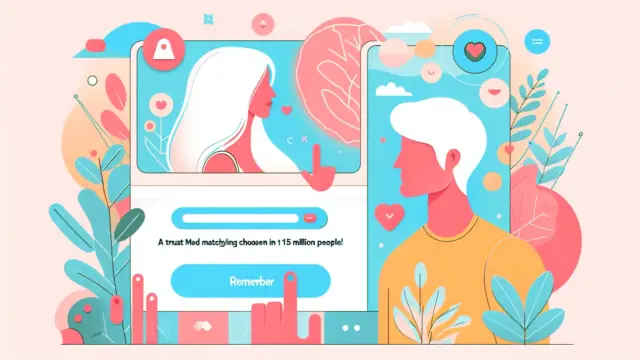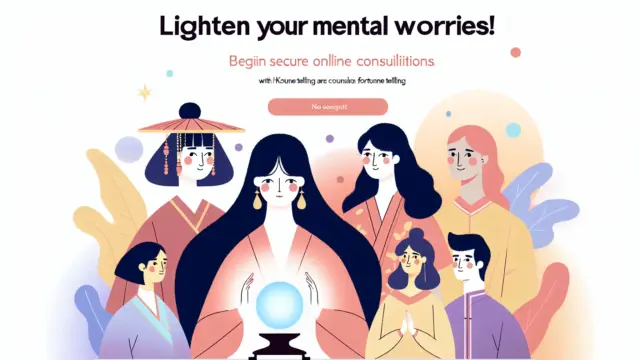When we think about the psychology of women loving women, we uncover a wealth of deep emotions and complex backgrounds. Moments when the line between friendship and romantic love becomes blurred can arise in various situations. By exploring the inner conflicts many women face, we might be able to foster richer, more meaningful relationships.
This article delves into the psychology of women loving women, examining the differences between friendship and love, as well as the mechanisms that lead to the emergence of romantic feelings. We will also touch on the impact of social factors and self-discovery, exploring the profound depths of relationships among women.
- The Fine Line Between Friendship and Love Among Women
- The Influence of Social Factors on Psychology
- How Self-Understanding Transforms Romantic Feelings
Understanding the Psychology Behind Women Loving Women
The psychology of women being attracted to other women is a complex interplay of friendship and affection. In this section, we’ll explore how relationships between women are formed and when friendship can evolve into romantic feelings. Additionally, we’ll delve into the mechanisms that spark these romantic emotions, shedding light on the psychological landscape among women.
The Fine Line Between Friendship and Affection
Friendship among women is built on trust and empathy, but there are moments when affection can blossom. Particularly during challenging times, when women support each other or share deep conversations, their bond often deepens. It’s not uncommon for love to emerge within such intimate relationships.
Cultural and social contexts also play a significant role in this dynamic. For instance, how media portrays female relationships and the values of those around them can blur the lines between friendship and love. It’s fascinating to consider how these factors influence the psychology of women developing feelings for other women.
- Female friendships are rooted in trust and empathy
- Love can arise from supporting each other during tough times
- Social backgrounds can blur the lines between friendship and affection
The Mechanisms Behind Romantic Feelings
The emergence of romantic feelings involves a variety of intertwined factors. Psychologically speaking, attraction, shared interests, and aligned values are crucial elements that can trigger romantic emotions. Notably, as intimacy increases, feelings toward one another can shift more easily.
Additionally, hormones and neurotransmitters significantly influence these romantic feelings. For example, oxytocin and dopamine are released during moments of closeness, enhancing the feelings of affection toward one another. Thus, the psychology of women loving women also has a scientific aspect that adds depth to our understanding.

If you’re intrigued by this topic, you might also enjoy our article “What Psychology Do Women Show When They Like Men? Points You Should Definitely Know.” It explores key insights for a deeper understanding of women’s romantic psychology and offers tips for building better relationships.
- Attraction and shared interests can trigger romantic feelings
- Increased intimacy fosters emotional shifts
- Hormones play a role in romantic emotions
The Impact of Social Factors
When it comes to the psychology of women being attracted to other women, it’s not just individual inner factors at play; societal backgrounds and cultural contexts significantly influence these feelings as well. In this section, we’ll explore how media and culture shape relationships among women and how social risks can affect those connections. We’ll also delve into how these factors can transform into romantic feelings.
The Influence of Media and Culture
Media has a powerful impact on our perceptions and values. Particularly in films, dramas, and advertisements, friendships and romantic relationships between women are often glamorized, which can shape the psychology of women. Such portrayals in the media can encourage women to embrace their attractions to other women.
Cultural background is another crucial element to consider. For instance, in open-minded cultures, romantic relationships between women tend to be more accepted. Conversely, in conservative cultures, such relationships may be viewed as taboo, creating psychological barriers. Both media and culture play key roles in shaping relationships among women.
- Media can glamorize romantic relationships between women
- Cultural backgrounds affect the acceptance of romantic feelings
- Relationships among women depend on social values
Social Risks and Overcoming Them
The psychology of women being attracted to other women often comes with social risks. Specifically, the scrutiny of others and prevailing prejudices can create barriers to expressing romantic feelings openly. As a result, many women find it challenging to share their emotions.
However, in recent years, understanding of LGBTQ+ issues has grown, making it easier for many women to embrace their feelings. The rise of support groups and communities has contributed to a sense of psychological safety, helping women nurture their romantic feelings. This shift is paving the way for a more liberated environment where individuals can express their emotions freely, overcoming social risks.
- Social risks can act as barriers to romantic feelings
- Understanding of LGBTQ+ issues is advancing
- Support groups provide psychological safety
Self-Discovery and Sexual Identity
The psychology behind women loving women is deeply intertwined with self-discovery and the understanding of sexual identity. In this chapter, we will explore the diversity of sexuality and examine how self-awareness influences our psyche. We will particularly highlight the changes in romantic feelings that arise during the process of self-discovery, as well as the significance of these dynamics in relationships between women.
The Diversity of Sexuality
Sexuality is incredibly diverse, varying greatly from one individual to another. When it comes to the psychology of women loving women, it encompasses not only heterosexual perspectives but also those of lesbians and bisexual women. This range of sexual identities plays a crucial role in shaping romantic feelings.
Recognizing one’s sexual identity is vital for understanding oneself. As acceptance of sexuality progresses, it creates a more open and safe environment for women to express their emotions within their relationships. This aspect is essential for grasping the psychology behind women falling in love with other women.
- Sexuality is diverse and varies based on individual experiences
- Recognizing sexual identity leads to better self-understanding
- Greater acceptance fosters openness in relationships between women
Changes Brought About by Self-Understanding
Self-understanding is a critical step for women as they explore their emotions and desires. Through the process of self-discovery, one’s perspective on love and emotional experiences can undergo significant changes. This often leads to increased self-esteem and confidence, resulting in deeper connections with others.
Moreover, as self-awareness deepens, communication among women becomes smoother, paving the way for closer relationships. By fostering an environment where romantic feelings can more readily develop, the psychology of women loving women is nurtured.
- Self-understanding is crucial for exploring emotions and desires
- Increased self-esteem deepens relationships with others
- Smooth communication nurtures romantic feelings
The Impact of Romantic Experiences on Psychology
The psychology behind why women are attracted to women is significantly influenced by their past romantic experiences. In this section, we will explore how previous relationships shape current feelings of love and the lessons learned from relationships between women. Romantic experiences contribute to self-understanding and emotional depth, enriching the way we connect with others.
How Past Relationships Affect the Present
Past romantic experiences can have a wide range of effects on current feelings and relationships. In particular, the pain and joy associated with these experiences leave a lasting imprint on our hearts, often leading to expectations and anxieties about future romances. For example, a past trauma can make someone hesitant to build new connections.
On the flip side, positive experiences can boost confidence and help individuals approach new relationships with an open heart. Understanding how past romances influence the psychology of women loving women is crucial for navigating the progression of romantic relationships.
- Past romantic experiences influence current emotions
- Trauma can lead to caution in new relationships
- Positive experiences foster self-confidence
Lessons Learned from Relationships Between Women
Relationships among women serve as a treasure trove of lessons derived from romantic experiences. Reflecting on past relationships allows individuals to analyze what worked well and identify areas that posed challenges. This kind of reflection is an essential step toward improving future connections.
Moreover, sharing experiences among women fosters empathy and provides emotional support. This deepens the understanding of the psychology behind women loving women, facilitating the creation of stronger bonds. The lessons learned from romantic endeavors not only enrich relationships among women but also nurture romantic feelings.

If you found this article interesting, you might also enjoy “What Do Women and Men with Beautiful Skin Think? Uncovering the Truth Behind Beauty!.” This piece delves into the impact of beauty on romance and self-esteem while offering insights relevant to relationships among women.
- Lessons from past romances improve relationships
- Sharing experiences generates empathy
- Relationships between women support the development of romantic feelings
Conclusion
The psychology behind why women are attracted to other women can be understood from various angles, including friendship, love, social influences, and self-discovery. By recognizing how past romantic experiences and the diversity of sexuality impact feelings of attraction, we can foster deeper relationships. Particularly, enhancing our self-understanding is a key factor in nurturing romantic feelings.
It’s also crucial to overcome social risks while being influenced by media and culture. Relationships between women can serve as rich learning environments in love, helping with the expression and understanding of emotions. By considering these factors, we can gain a better grasp of the reasons behind women’s attraction to one another.
- The line between friendship and love among women is often blurred, and deeper understanding can cultivate romantic feelings.
- Social factors and cultural influences play a significant role in shaping romantic emotions.
- Insights gained from self-understanding and past romantic experiences enrich relationships.
Why not deepen your understanding and build more fulfilling relationships? We’d love to hear your thoughts and experiences in the comments!








Comment